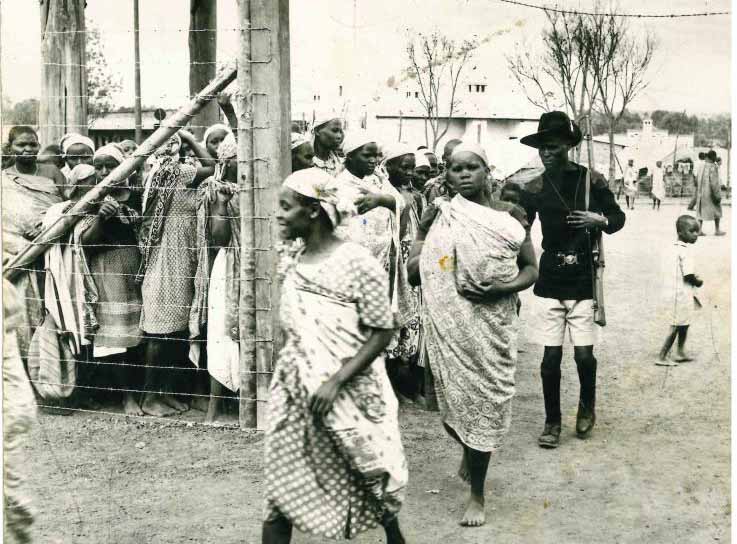×
The Standard e-Paper
Kenya’s Boldest Voice

A security guard keeping vigil as women queue in a Mau Mau detention camp in 1950 [File]
For ages, there has been a love-hate relationship between the military and soldiers' wives or lovers.